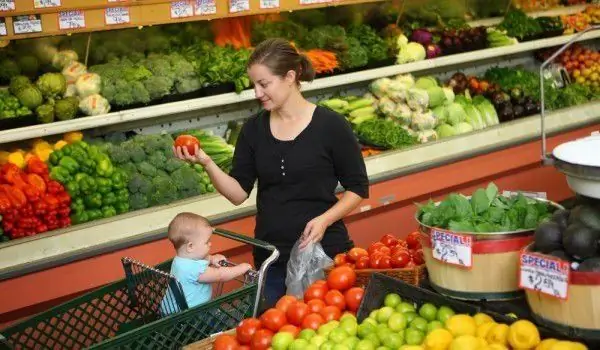2025 Author: Jasmine Walkman | [email protected]. Last modified: 2025-01-23 10:18
Native bakers warn Bulgarian consumers that for this Easter the markets may be full of fake Easter cakes that are not made from traditional products.
The industry informs that the fake Easter cakes can be recognized by the very low prices at which they are offered.
Usually these Easter cakes are up to 50% lower than the normal values of traditional Easter bread.
There is no milk, no sugar, no eggs in the fake Easter cakes. Most often they are prepared from egg melange, colors, sweeteners and preservatives - or so-called E's.
Experts say that the ingredients in fake Easter cakes are not dangerous to human health. However, some of them can cause intestinal problems in people with more sensitive stomachs, and can also cause allergies and rashes.

The traditional Easter cake is included in the group of pastries, not in the group of bakery products, which have stricter controls and requirements.
This loophole in the law allows many local producers to make Easter cakes from semi-finished products without including any of the traditional products needed to make Easter bread.
According to experts, there are several accurate identifications from which we can tell whether we are buying a real Easter cake or a fake.
Experts advise you to take a good look at the volume and weight of the product - the traditional Easter cake has a large volume and is quite light.
The expiration date can also show you if an Easter cake is not a fake. Carefully read the date of preparation of the product and the period until which it is fit for consumption - for Easter cake, which does not contain preservatives, this difference is not more than 10 days.
For the rest, the shelf life is from 6 months to 1 year and 2 months.
The Food Safety Agency assures that the control over the food offered around Easter will be stricter than usual. Before the holidays you will be monitored for poor quality and harmful products.
Consumers can also submit alerts on the Food Agency's website.
Recommended:
Inspections Of Eggs, Easter Cakes And Lamb Begin Before Easter

The joint inspections of the Bulgarian Food Safety Agency and the Consumer Protection Commission start before the Easter holidays. As of today, April 2, intensive inspections in the commercial network and online space of eggs, Easter cakes and lamb, which are traditionally present at the festive table, begin.
Unfit Vegetables Flood The Home Markets Due To The Blockade

The fruits and vegetables that flood the home markets are either unfit or just before spoiling due to the prolonged blockade of the Bulgarian-Greek border. The Secretary of the Bulgarian Association of Greenhouse Producers Georgi Kamburov informed about this danger.
Greek Watermelons Flood The Home Markets

It is almost impossible to buy Bulgarian watermelons from the markets in our country, as most of the summer fruits are imported from Greece. Bulgarian producers blame the rain for the lack of Bulgarian watermelons. Apart from the fact that the production is extremely low this year, the native farmers also face great difficulties with the competition from the Greek side, because the fruits from our southern neighbor are offered at lower prices than the domestic production.
Easter Cakes With Dangerous Sweeteners And Old Eggs Flood The Easter Market

As Easter approaches, warnings from manufacturers and authorities about substandard products are expected to flood the market. The most sought-after products are the most manipulated - eggs and Easter cakes. Easter cakes, like most sweet products, are massively filled with sweeteners.
Fake Organic Food And Fake Honey Flood The Market

It has long been clear that there is a vicious practice under the label "Bio-" to stand fake product. Not only do consumers pay a much higher price in the desperate hope of buying a natural product for themselves and their families, they are also deceived by the clever marketing tricks of the market.

